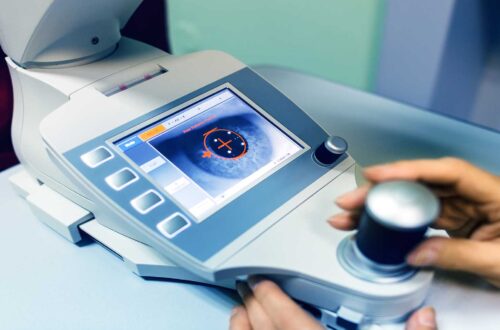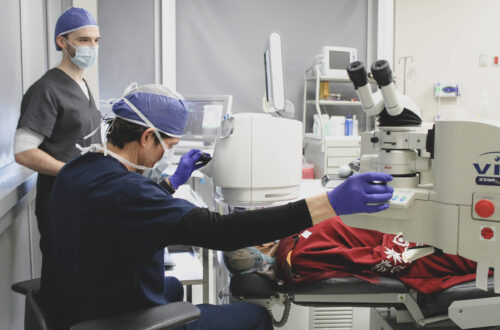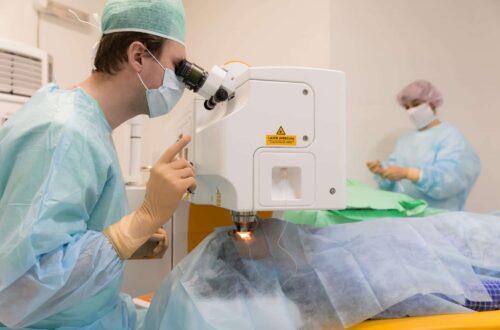
Post-LASIK Care and Recovery: Essential Tips for a Smooth and Successful Healing Process
If you have recently undergone LASIK surgery, congratulations on taking the first step towards achieving clear vision! As you embark on the road to visual freedom, it is important to remember that proper post-operative care and recovery are just as crucial to your ultimate success as the procedure itself. In this article, we will provide you with essential tips and guidelines for a smooth and successful recovery process.
Understanding the LASIK Recovery Timeline
Before we delve into the specifics of post-operative care, let’s take a moment to understand the general timeline of LASIK recovery. The healing process can vary slightly from person to person, but most patients can expect to experience similar phases:
One of the most common questions that patients have before undergoing lasik surgery is what to expect during the recovery process. While the procedure itself is relatively quick and painless, it is essential to understand the timeline of LASIK recovery to ensure proper healing and optimal results.
Immediate Post-Procedure Care
Immediately after your LASIK procedure, your surgeon will provide you with detailed instructions for care and medication. It is essential to follow these instructions closely to ensure proper healing and minimize the risk of complications. You may experience mild discomfort, watering, and a gritty sensation in your eyes. However, these side effects are entirely normal and will dissipate within a few hours. Your surgeon may provide you with eye shields to wear immediately after the procedure to protect your eyes while you rest.

It is important to avoid touching or rubbing your eyes during this initial phase of recovery, as this can increase the risk of infection and other complications. Your surgeon may also prescribe pain medication or eye drops to help manage any discomfort you may experience.
The First 24 Hours
During the first 24 hours after the procedure, it is important to rest as much as possible and avoid any activities that could damage your eyes. This includes driving, reading, watching TV, using a computer or mobile phone, or any activity that requires you to strain your eyes. Your surgeon will also provide you with medicated eye drops to use at regular intervals. Follow these instructions closely to ensure proper healing.
It is normal to experience some blurriness or haziness in your vision during this initial phase of recovery. Your eyes may also feel dry or itchy, and you may notice some sensitivity to light. These symptoms are entirely normal and will gradually improve over time.
The First Week
The first week after LASIK surgery marks a crucial phase in your recovery. You will need to attend several post-operative appointments with your surgeon to monitor your progress and ensure that your eyes are healing properly. During this time, you may experience some dryness and discomfort in your eyes, as well as mild fluctuations in your vision. These symptoms are normal and will gradually improve over time.
Your surgeon may also recommend that you avoid certain activities during this initial phase of recovery. For example, you may be advised to avoid swimming, wearing eye makeup, or rubbing your eyes. It is important to follow these guidelines closely to minimize the risk of complications and ensure optimal healing.
Long-Term Recovery Expectations
While most patients will experience significant improvement in their vision within the first week after LASIK surgery, it is important to remember that the healing process can take several months. Long-term recovery can vary from person to person, and your surgeon will provide you with individualized instructions for care and recovery. It is essential to attend all post-operative appointments and follow your surgeon’s guidelines closely.
During the long-term recovery phase, you may notice some fluctuations in your vision or experience dryness or discomfort in your eyes. These symptoms are entirely normal and will gradually improve over time. It is important to continue using any prescribed eye drops or medications and to avoid activities that could damage your eyes.
Overall, the LASIK recovery timeline is a gradual process that requires patience and diligence on the part of the patient. By following your surgeon’s instructions closely and attending all post-operative appointments, you can ensure optimal healing and enjoy the benefits of improved vision for years to come.
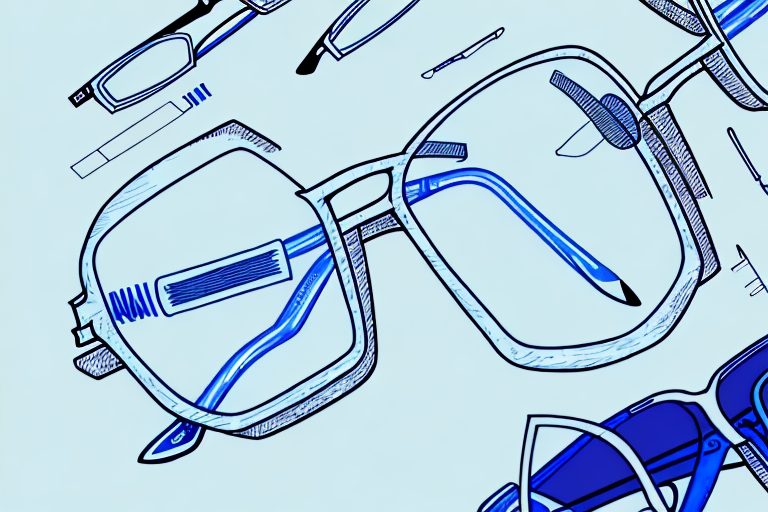
Essential Post-LASIK Care Tips
Protecting Your Eyes
After LASIK surgery, your eyes are particularly vulnerable to damage from the sun and other environmental factors. It is essential to protect them by wearing sunglasses and a hat when you are outside, even on cloudy days. Not all sunglasses are created equal, so make sure to choose a pair that provides adequate protection from both UVA and UVB rays. Additionally, consider wearing wrap-around sunglasses to protect your eyes from wind and dust.
In addition to wearing sunglasses, it is also important to avoid exposing your eyes to irritants that can cause damage. This includes avoiding smoke, dust, and other airborne particles that can cause irritation and inflammation. If you work in a dusty or smoky environment, consider wearing safety goggles to protect your eyes.
Managing Discomfort and Dryness
During the first few weeks after LASIK surgery, you may experience some discomfort and dryness in your eyes. This is normal and can usually be managed with medicated eye drops provided by your surgeon. However, there are other steps you can take to alleviate these symptoms.
One effective way to reduce dryness is to use a humidifier in your home, especially if you live in a dry climate. This can help add moisture to the air and prevent your eyes from drying out. You can also try using artificial tears throughout the day to keep your eyes lubricated.
Maintaining Good Eye Hygiene
Good eye hygiene is crucial to your recovery process. In addition to washing your hands before touching your eyes or applying eye drops, it is also important to avoid rubbing your eyes at all costs. Rubbing your eyes can cause irritation and increase your risk of infection.
It is also important to avoid wearing eye makeup or contact lenses until your surgeon gives you permission to do so. This is because both of these can increase your risk of infection and slow down the healing process.
Adhering to Your Medication Schedule
After LASIK surgery, your surgeon will provide you with a detailed medication schedule. It is essential to follow this schedule closely to ensure proper healing. This may include taking oral medications, using medicated eye drops, or applying ointments to your eyes.
If you have any questions or concerns about your medication schedule, do not hesitate to contact your surgeon. It is important to communicate with your medical team throughout the recovery process to ensure the best possible outcome.
Monitoring Your Progress and Potential Complications
Recognizing Normal Healing Symptoms
During the healing process, it is normal to experience some mild discomfort, dryness, and fluctuations in vision. However, it is important to be able to recognize any symptoms that could indicate a problem. If you experience any sudden vision changes, severe pain, or discharge from your eyes, contact your surgeon immediately.
It is also common to experience some sensitivity to light and glare, as well as halos or starbursts around lights. These symptoms usually improve over time as your eyes continue to heal. Your surgeon may recommend using artificial tears or other eye drops to help alleviate these symptoms.
Identifying Potential Complications
Although LASIK surgery is generally safe and effective, there is always a small risk of complications. Some potential complications include infection, corneal flap complications, and vision changes. It is important to follow your surgeon’s post-operative instructions carefully to minimize your risk of complications.
Infection is a rare but serious complication that can occur after LASIK surgery. Symptoms may include redness, swelling, pain, and discharge from the eyes. If you suspect that you may have an infection, contact your surgeon immediately.
Corneal flap complications can occur if the flap created during the surgery becomes dislodged or folds over. This can cause vision changes, discomfort, and may require additional surgery to correct. To minimize your risk of flap complications, avoid rubbing your eyes and follow your surgeon’s instructions for post-operative care.
Changes in vision can occur after LASIK surgery, including undercorrection, overcorrection, and astigmatism. These issues can often be corrected with additional surgery or the use of corrective lenses. It is important to discuss any concerns you have about your vision with your surgeon.
When to Contact Your Surgeon
If you experience any symptoms or side effects during your recovery process, do not hesitate to contact your surgeon. They can provide you with further guidance and support, and may recommend additional treatment options if necessary. It is important to attend all scheduled follow-up appointments to monitor your progress and ensure that any potential complications are caught early.
Overall, LASIK surgery can be a safe and effective way to improve your vision. By understanding the normal healing process, potential complications, and when to seek medical attention, you can help ensure a successful outcome.
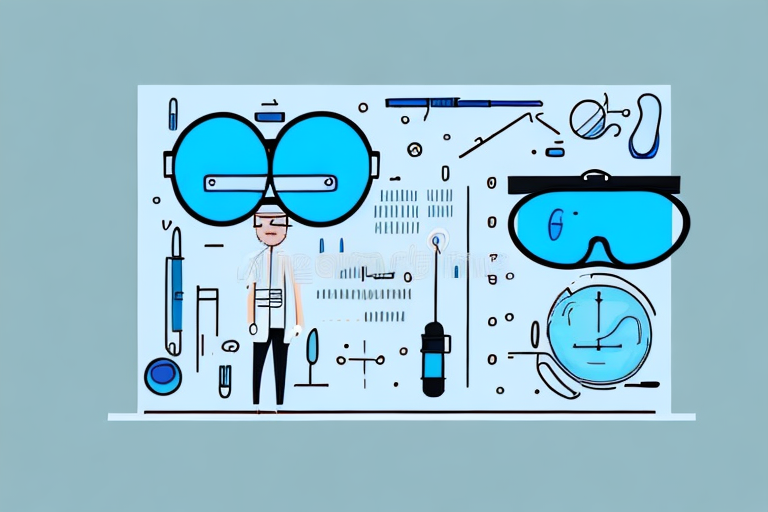
Maximizing Your Visual Outcomes
Following Your Surgeon’s Recommendations
To maximize your visual outcomes after LASIK surgery, it is crucial to follow your surgeon’s recommendations closely. Attend all follow-up appointments, use your prescribed eye drops as instructed, and avoid any activities that could damage your eyes.
Following your surgeon’s recommendations is essential to ensure that you achieve the best possible results after LASIK surgery. Your surgeon will provide you with detailed instructions on how to care for your eyes after the procedure. These instructions will include information on how to clean your eyes, how to use your prescribed eye drops, and what activities to avoid. It is crucial that you follow these instructions carefully to ensure that your eyes heal properly and that you achieve the best possible visual outcomes.
Maintaining Regular Eye Exams
In addition to following your surgeon’s recommendations, it is also essential to maintain regular eye exams with your optometrist or ophthalmologist. Regular eye exams are crucial to maintaining good eye health and detecting any potential complications early on.
Your optometrist or ophthalmologist will perform a comprehensive eye exam to check for any changes in your vision or any signs of eye disease. They will also check the overall health of your eyes, including your cornea, retina, and optic nerve. By detecting any potential issues early on, your eye doctor can take steps to prevent them from becoming more serious and help you maintain good vision for years to come.
Addressing Residual Refractive Errors
In some cases, residual refractive errors may occur after LASIK surgery. These can usually be corrected with additional treatment, such as a follow-up LASIK procedure or other refractive surgery options.
If you experience any vision changes or residual refractive errors after LASIK surgery, it is essential to discuss these options with your surgeon. Your surgeon can help you determine the best course of action to correct any issues and ensure that you achieve the best possible visual outcomes.
With proper post-operative care and recovery, LASIK surgery can provide you with clear vision and improved quality of life. Follow these essential tips and guidelines to ensure a smooth and successful healing process. And always remember to contact your surgeon if you have any concerns or questions during your recovery process.
By following your surgeon’s recommendations, maintaining regular eye exams, and addressing any residual refractive errors, you can ensure that you achieve the best possible visual outcomes after LASIK surgery and enjoy clear vision for years to come.


